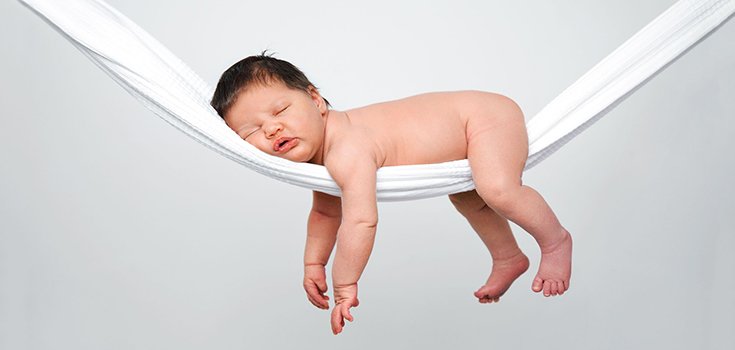New Guidelines Detail How Much Sleep Kids ‘Really Need’

As a child, summertime often means getting to sleep in, but for much of the year, kids don’t get enough sleep. People’s sleep requirements change as they get older, but youngsters, in general, all seem to be lacking their proper Z’s. But too much sleep can be just as bad for kids as not enough of it.
The amount of sleep a child gets is important, but so, too, are the sleep patterns they form throughout their lives. Depending on a child’s age, he will spend different amounts of time in REM sleep, which is the deepest sleep phase, and non-REM sleep.
Both types are vital for optimal learning, but REM is believed to be especially important for cognitive functions, such as consolidating memories, and the growth and development of the central nervous system, Dr. Maria Melendres, a pediatric pulmonologist and sleep specialist at Johns Hopkins Children’s Center, explained to Live Science.
Some sleep recommendations are fairly universal: go to sleep and wake up at the same time every day, and avoid blue light emitted from phones, tablets, and computers at night. But exactly how much sleep do babies, younger children, and teens actually need?

The American Academy of Pediatrics (AAP) supports recommendations developed by the American Academy of Sleep Medicine (ACSM), published in the Journal of Clinical Sleep Medicine:
- Infants 4 to 12 months – 12 to 16 hours of sleep every 24 hours (including naps).
- Children 1 to 2 years – 11 to 14 hours of sleep every 24 hours (including naps).
- Children 3 to 5 years – 10 to 13 hours of sleep every 24 hours (including naps).
- Children 6 to 12 years – 9 to 12 hours of sleep every 24 hours.
- Teens 13 to 18 years – 8 to 10 hours of sleep every 24 hours.
No guidelines for infants under 4 months old were created because there is such a wide range of what is normal in terms of newborns’ sleeping habits, and there isn’t enough research to back up guidance for this age group.
Dr. Lee Brooks, an attending pulmonologist at The Children’s Hospital of Philadelphia, explained to CBS News that when children get the proper amount of sleep, they are more likely to have fewer behavioral problems, better memory, improved emotional regulation, and an overall better quality of life.
On the other hand, children who don’t get enough quality sleep are more prone to injuries, hypertension, obesity, diabetes, and depression, along with other health problems.

For pre-teens and teens, a lack of sleep is a common problem. Dr. Wendy Sue Swanson, a pediatrician with Seattle Children’s Hospital and The Everett Clinic, said:
“The majority don’t get the sleep they need. The National Sleep Foundation has found that over 85 percent of teens lack adequate sleep. Sleep matters: deprivation and tiredness affect schoolwork, attention, mood, interactions, unhealthy weight risk and lifelong health habits.”
Read: Sleep is Essential for Academic Success
Too much sleep can be hazardous to your health, too, so now parents have a reason to get their teens of bed before 2 o’clock in the afternoon. But first they’ll have to get their kids to put their phones away and go to sleep.
All screens should be turned off 30 minutes prior to bedtime, the AAP says, and televisions, computers, smartphones, and other electronic gadgets should be kept out of kids’ bedrooms. Rather than trying to wrestle devices out of kids’ hands, Brooks recommends negotiating with them. She gave the following example:
“If a child needs to listen to music [on a digital device] before going to sleep, then set aside time beforehand, outside of bed.”
The same goes for online games at night. Says Brooks:
“You need time to wind down in order to go to sleep. So if you’re sitting in bed playing a shoot-em-up game, that’s not going to relax you and help you get to sleep.”
If teens are oversleeping by 2 or more hours on the weekend to “catch up,” dozing off when they shouldn’t be, or parents have to drag them out of bed in the morning, those are sure signs they aren’t getting enough sleep.
Read: A Third of High Schoolers are Sleep-Deprived Due to Early School Start Times
Lisa Meltzer, Ph.D., a sleep psychologist at National Jewish Health, told Healthline:
“In America, sleep is for slackers, at least in the public mindset.”
And as for the old saying, “I’ll sleep when I’m dead,” Meltzer says:
“If you believe that, you’ll be dead sooner.”
So, it’s important to instill good bedtime habits in children at the youngest age possible. According to the AAP, Babies, toddlers, and younger children should have a regular, structured bedtime routine, such as reading a book together and brushing teeth, and going to bed at the same time every evening.

Dr. Maida Chen, director of the Pediatric Sleep Disorders Center at Seattle Children’s, told CBS News that different routines work for different families. She explained:
“Each family needs to find what works best for their dynamic and overall function — there is not a one-size-fits-all solution to sleep. Even ‘a decent hour’ is defined differently in different families, cultures, and situations. The overarching message here is that we all need to be better at prioritizing sleep health for our children, and that starts with prioritizing it for the entire family, especially the grown-ups, whose behavior provides a life-long model for their children.”
Image Source:
